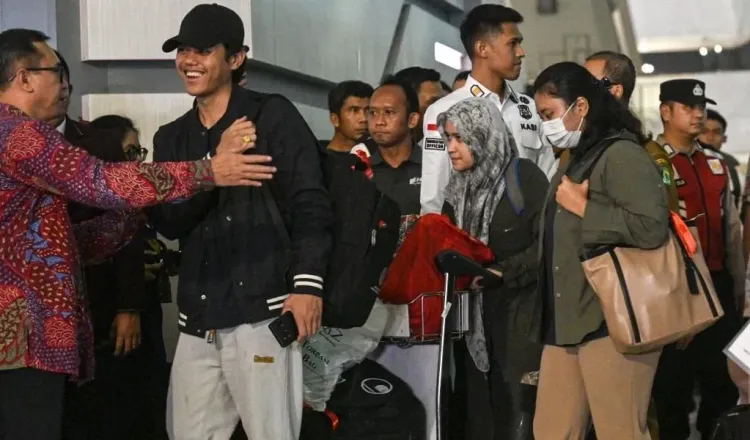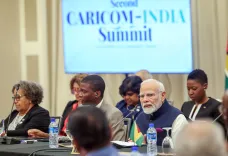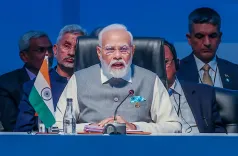Why Did Indonesia Evacuate Citizens from Iran and Israel?

Synopsis
Key Takeaways
- 97 Indonesian citizens evacuated from Iran.
- 26 citizens evacuated from Tel Aviv, Jerusalem, and the Arabah area.
- Crisis response team established by the Indonesian government.
- Ongoing monitoring of the situation for remaining citizens.
- International tensions prompted swift governmental action.
Jakarta, June 30 (NationPress) The Indonesian government has successfully executed the evacuation of 97 of its citizens from Iran and 26 from Tel Aviv, Jerusalem, and the Arabah region, in light of the rising tensions in these areas, as stated by Foreign Minister Sugiono on Monday.
"The government has set up a crisis response team and will persist in the evacuation efforts while closely monitoring the situation of Indonesians amidst the ongoing conflict," Sugiono remarked during a session with House of Representatives members.
The evacuation was facilitated through Azerbaijan and involved the Indonesian embassies in both Tehran and Amman.
He noted that there were 386 Indonesian citizens in Iran, with some opting to remain in the country.
In contrast, the population of Indonesian citizens in Tel Aviv, Jerusalem, and the Arabah area stood at 167 individuals.
"Some individuals have chosen to stay and have not indicated a desire to relocate, but we continue to keep an eye on the circumstances," he added, as reported by Xinhua news agency.
Last week, a batch of 11 Indonesian citizens was successfully evacuated from Iran and returned to Indonesia amid escalating tensions in the Middle East.
The ministry detailed that this initial group landed on June 25 via a commercial flight from Istanbul after being evacuated to the Azerbaijani capital Baku from Iran, accompanied by 86 other individuals.
Meanwhile, Iranian Foreign Minister Seyed Abbas Araghchi has urged the United Nations Security Council (UNSC) to recognize Israel and the United States as the instigators of the aggression against Iran.
In a correspondence addressed to UN Secretary-General Antonio Guterres and UNSC President Carolyn Rodrigues-Birkett, Araghchi called upon the Council to fulfill its duty in preserving international peace and security, as reported by the official IRNA news agency.
He accused Israel of deliberately targeting residential structures, civilians, and civilian infrastructure, labeling these assaults as a flagrant violation of the UN Charter and a blatant infringement of international law.
Araghchi asserted that Israel and the United States had also targeted Iran's nuclear facilities—protected by the International Atomic Energy Agency (IAEA)—in a serious breach of the UN Charter, the Non-Proliferation Treaty, as well as the IAEA's regulations and resolutions.









